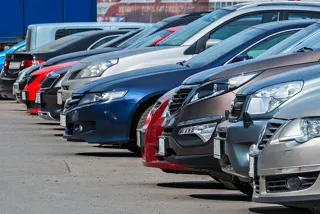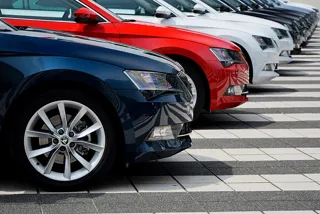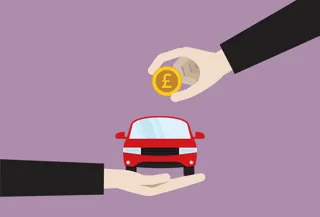Employees driving their own car for work – so-called grey fleet drivers – are being left out of pocket with current rates remaining unchanged for more than a decade.
That’s according to research conducted by the RAC Foundation, which suggests the 45 pence per mile (ppm) approved mileage allowance payments (AMAPs) rate should increase by 41% to 63p.
AMAPs are designed to include fuel, insurance, servicing and maintenance, with employers able to pay employees up to the approved without having to pay any tax on them.
This tax-free rate for cars is currently set at 45ppm for the first 10,000 business miles and 25p thereafter.
The rate was last increased in 2011, rising from 40p to 45ppm.
“We think the Treasury should commit to an urgent review of the mileage rate,” Steve Gooding, RAC Foundation
According to the Office for National Statistics (ONS) the cost of motoring in April 2023 was 41% higher than in April 2011.
A rate of 63ppm would mean that someone covering 5,000 miles per annum for work in their own car could receive up to £3,150 before facing a tax liability.
However, if a firm uses the current tax-free maximum of 45p as the rate of reimbursement, an employee will only get a total of £2,250 meaning they are losing out by £900 each year.
The research by the RAC Foundation was carried out to help inform a report by the union Unison into the impact of the rate freeze on front line public service workers.
The ONS’s cost of motoring number is derived by taking the price of the different elements of motoring expenditure from within the overall ‘basket of goods’ it monitors, and combining them together in the proportions spent on each on average.
Looking individually at the different cost of motoring categories as identified by the ONS: tax and insurance’ has risen 183% over the given time period; maintenance has risen 48%; urchase costs have risen 16%; and petrol has risen by 12%.
Steve Gooding, director of the RAC Foundation, said: “We know that some of our most important workers – those employed in health and social services, and in supporting roles, often working outside ‘normal’ office hours -– need to drive their cars for work but are being left out of pocket by the failure of ministers to sanction an uplift in the amount per mile they can receive tax-free for getting around to do their job.
“These aren’t board members and well-paid executives in new saloons but key workers in 5- to 10-year-old cars who can ill afford to be subsidising the rest of us for the cost of carrying out their critical roles.
“Tax cuts might be off the Prime Minister’s agenda for the time being, but surely fair tax treatment for these key workers should be a significant concern for the Chancellor in the face of a recognised cost-of-living squeeze.
“We think the Treasury should commit to an urgent review of the mileage rate and not leave it another decade before revisiting it again.”
Employers can pay their staff whatever they want when reimbursing them for driving for work in their own cars, but many use the 45p per mile rate to avoid tax implications.
A Treasury spokesperson said: “Whilst employers can reimburse at a higher level, the approved mileage allowance payments aim to reflect the average costs of running a vehicle, which in turn helps keep the administrative burden low and reimbursing simple.”























Login to comment
Comments
No comments have been made yet.